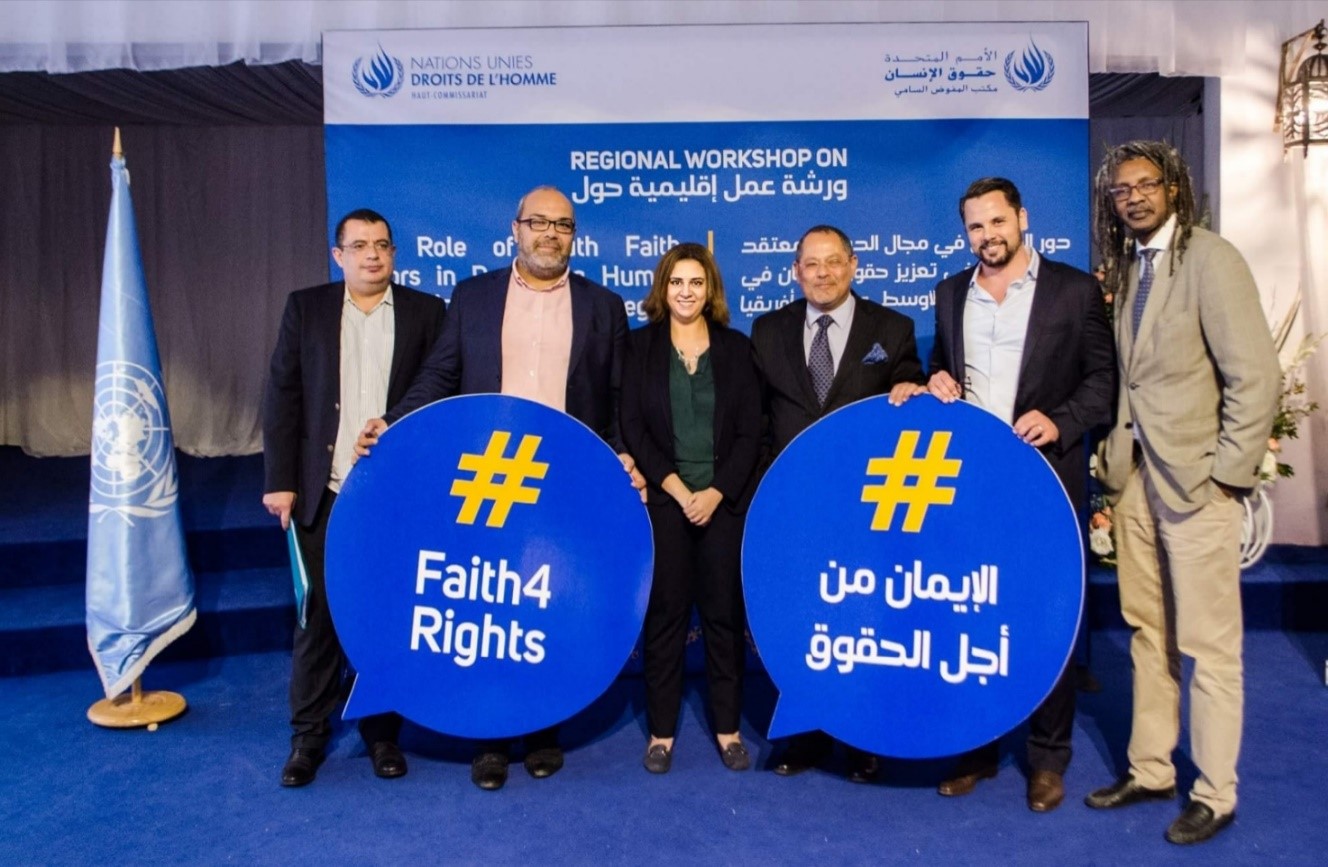Scenario E: A case to debate on collective apprehensions
#Faith4Rights toolkit
| In the State of Polis, the police routinely checks identities and conducts searches in a village that its inhabitants call “Makhoura” (oppressed) because of what they conceive as chronic police brutalities against its inhabitants. This village has a remote suburb where public services are weak and extreme poverty is overwhelming. Drug dealing is rampant in this suburb. The majority of inhabitants of this suburb belong to Oura, a religious minority constituting around 10% of the overall population of Polis. Whenever a police intervention occurs, it unleashes social unrest in the form of demonstrations against allegedly arbitrary and racially motivated police intervention. Such demonstrators raise slogans from Oura religious texts and take refuge in their places of worship. When the police intervened to evacuate the Oura place of worship from manifesting crowds, it found licenced arms that the Oura religious leaders claimed were for self-defence purposes. Searching the place of worship met resistance and led to causalities. As always when such incidents routinely occur, their press coverage accelerates polarisation between those who believe that law enforcement is a State responsibility that should not be sacrified under any alleged sensitivities and those who believe that the police demonstrated a bias against religious minorities and assumed their guilt in advance based on stereotypes and hostile media. A member of parliament submitted a draft legislation prohibiting arms, even licenced, in places of worship and prescribing closure as a penalty of non-compliance. In response, a group of religious leaders issued a statement condemning police actions as well as this draft legislation. |
Questions:
A sample of questions related to this case could include the following:
- Is this a case of law enforcement or rather an example of commitment VI on the rights of religious minorities?
- Is there a tension between law enforcement and protection of religious minorities?
- Would the search by the police of places of worship constitute a violation of freedom of religion or belief or any of the 18 commitments on "Faith for Rights"?
- What is your position on the draft legislation suggested by the Member of Parliament?
- If a group of religious leaders issues a statement condemning certain police interventions in or around of places of worship, would this be a welcomed joint action in favour of commitment VI or rather a violation of commitment X that prohibits the instrumentalization of religion for political purposes?
- What are the parameters that plead in favour of each of these possibilities in the case under discussion?
- What to do when law enforcement is perceived as infringing upon the rights of religious minorities?
A tip for facilitators:
 Facilitators could encourage a role play, where participants take on the roles of members of parliament, religious leaders and an atheist civil society organization. They could simulate a parliamentary hearing of the different views in order to inform the legislative process concerning the draft law. Participants may either refer to existing procedural possibilities in their respective society or invent such a consultative process.
Facilitators could encourage a role play, where participants take on the roles of members of parliament, religious leaders and an atheist civil society organization. They could simulate a parliamentary hearing of the different views in order to inform the legislative process concerning the draft law. Participants may either refer to existing procedural possibilities in their respective society or invent such a consultative process.